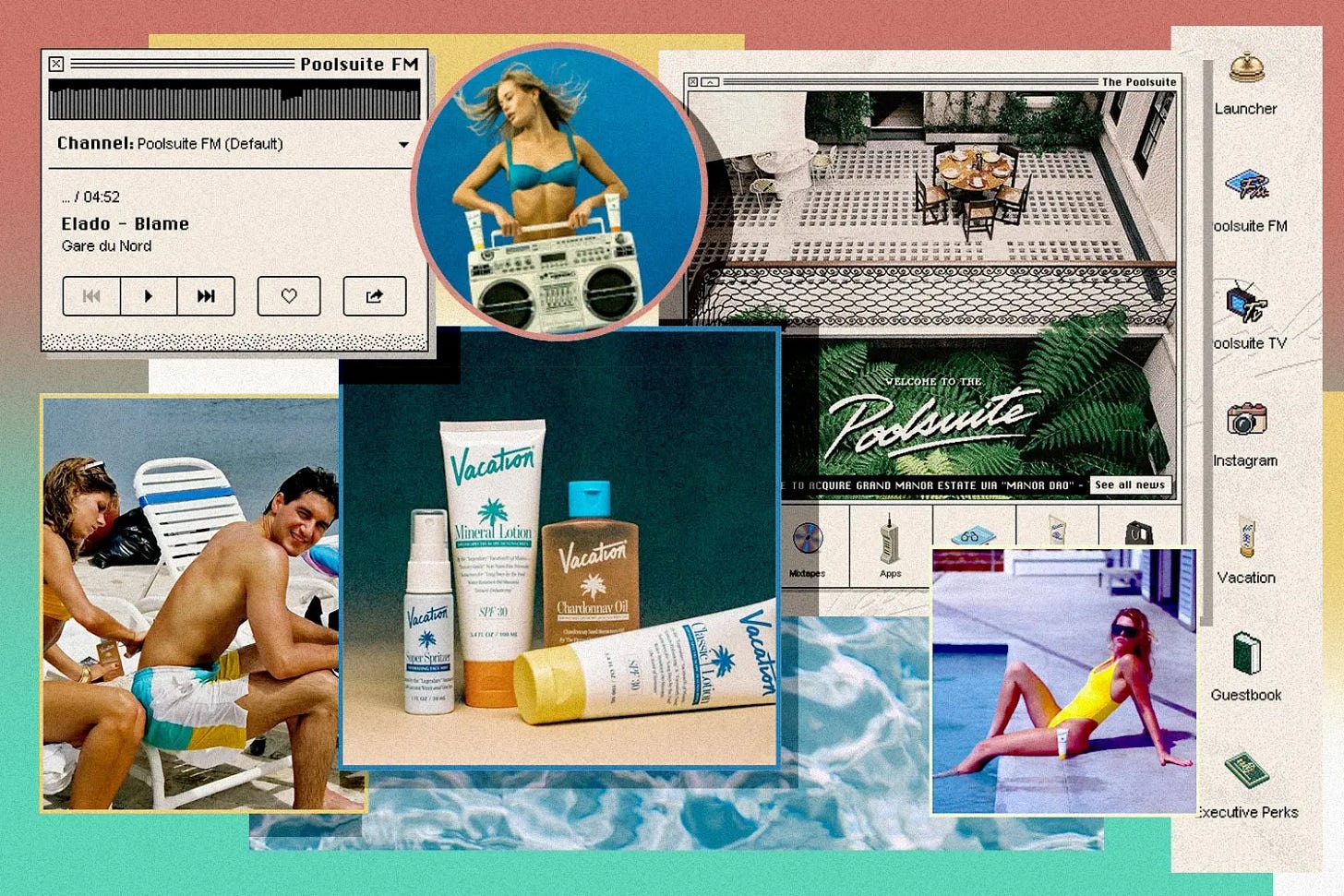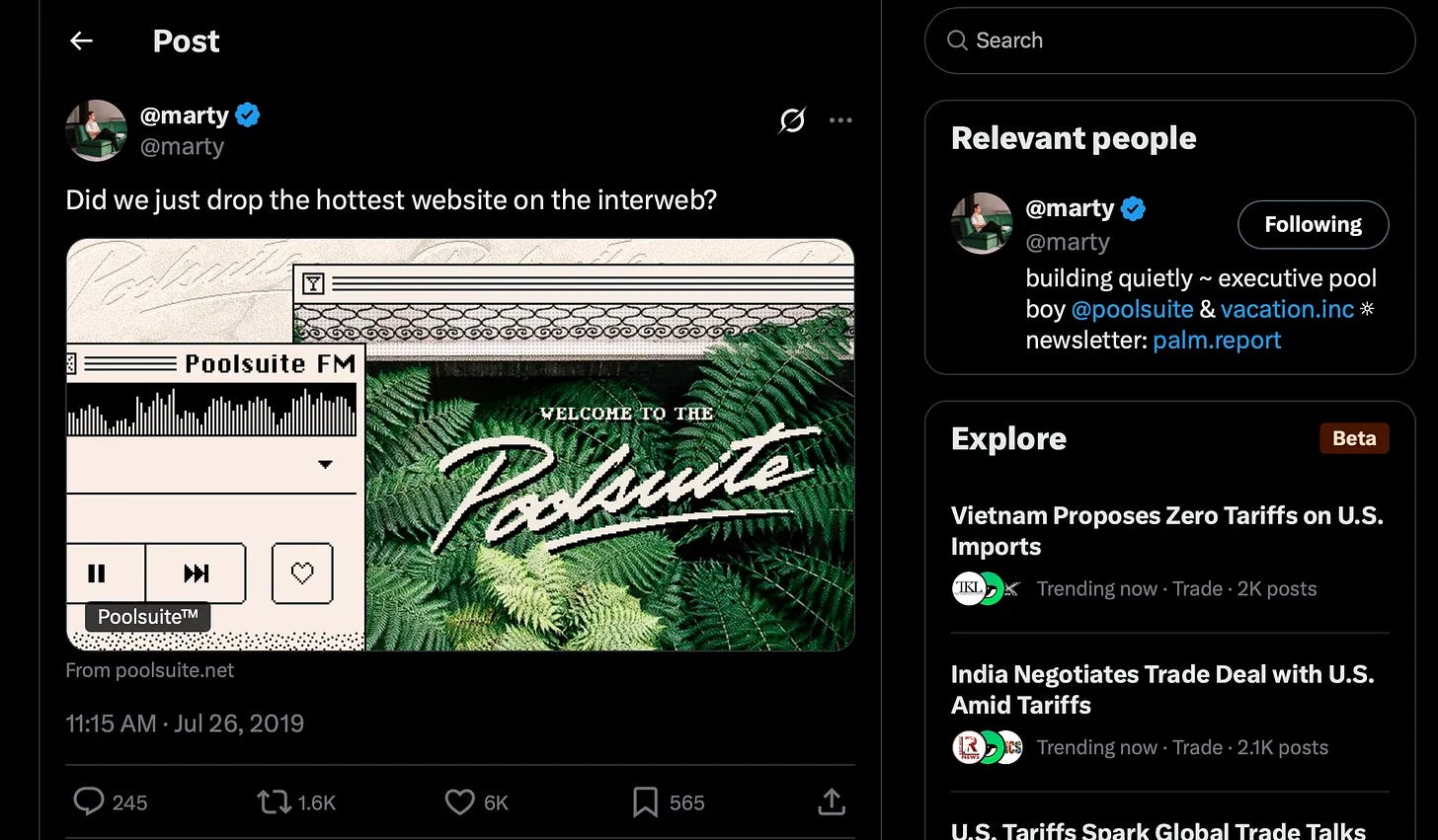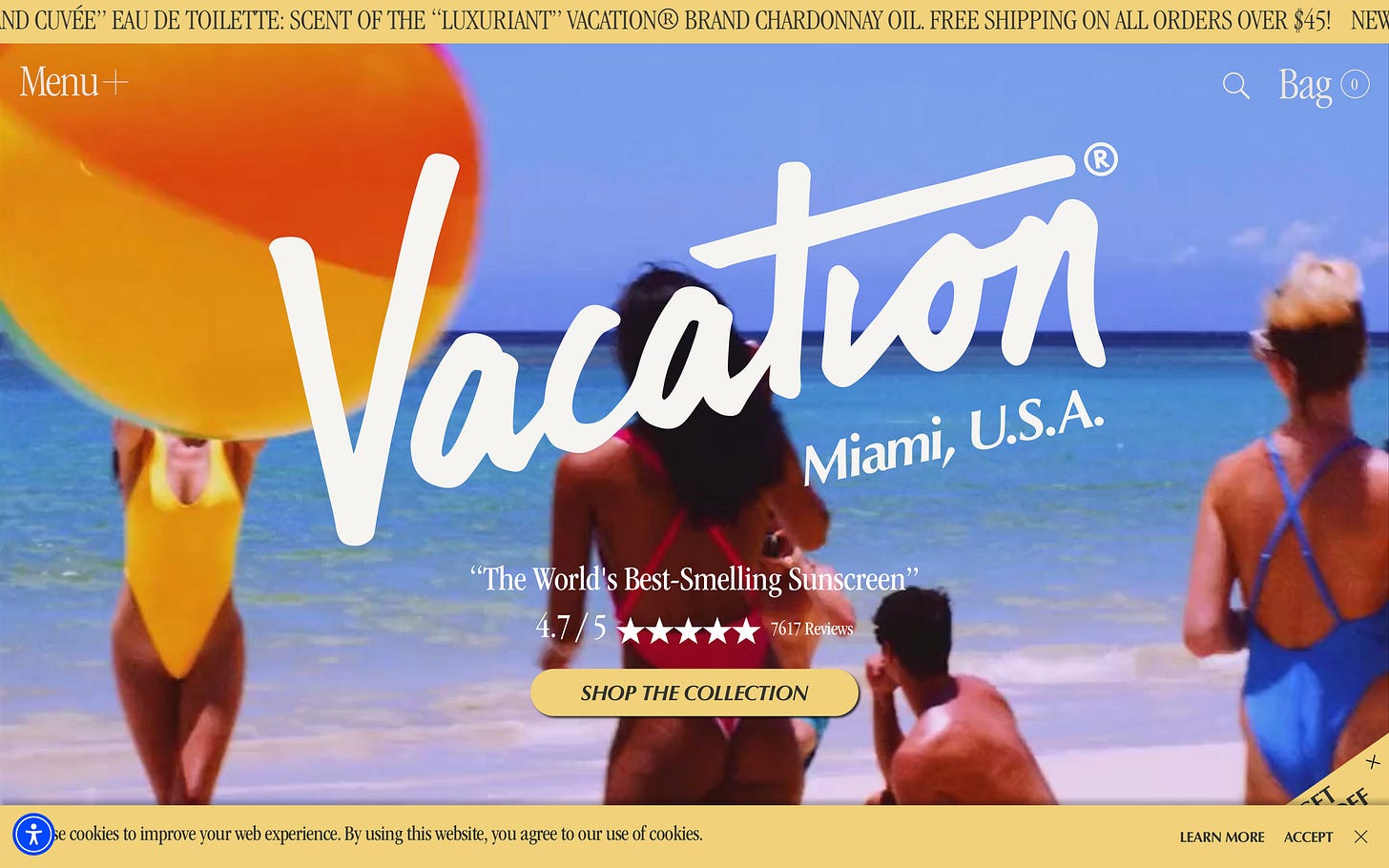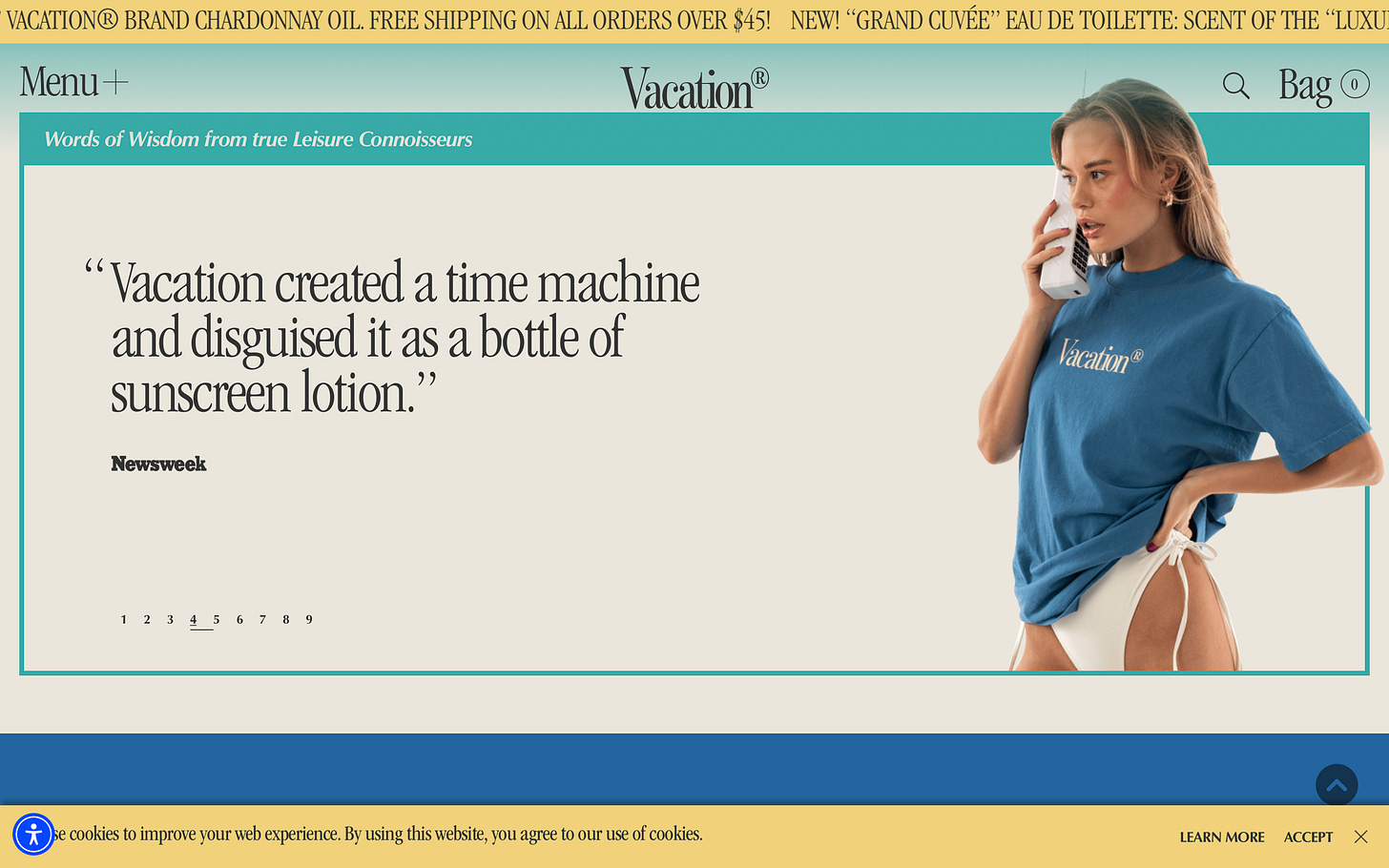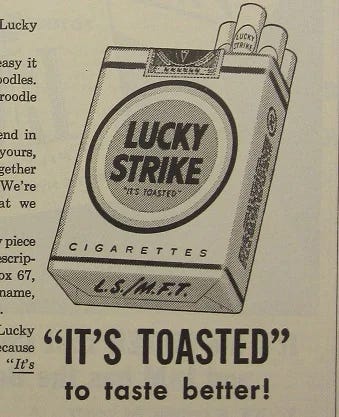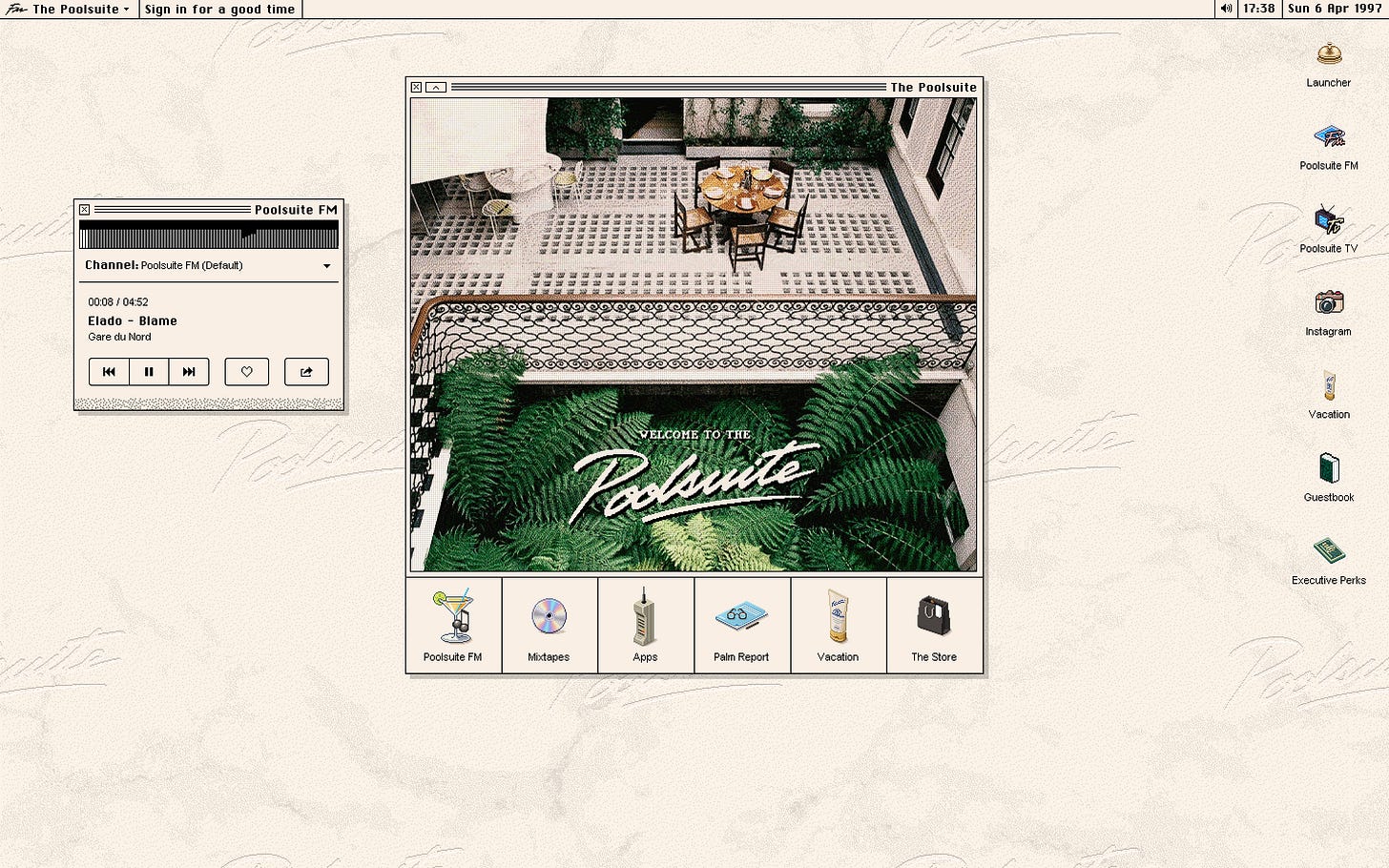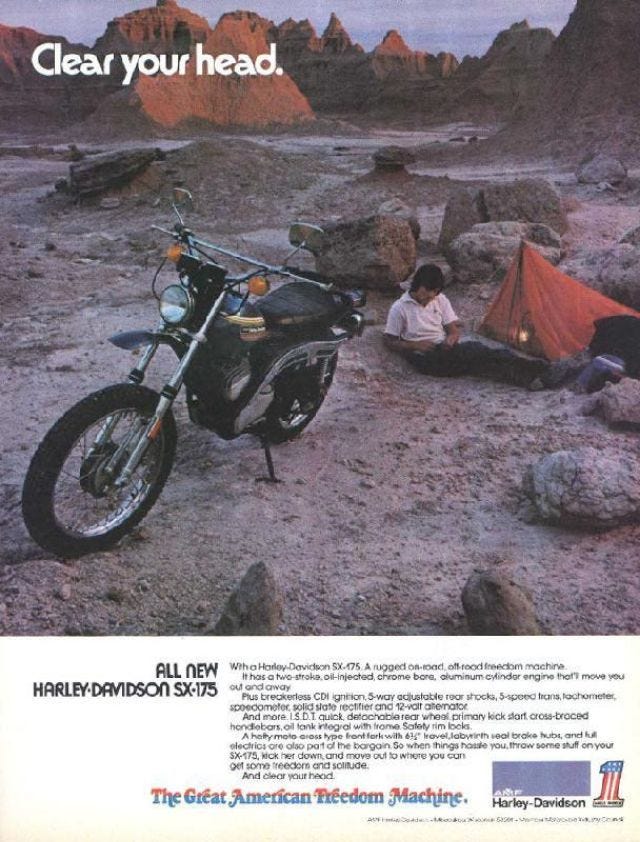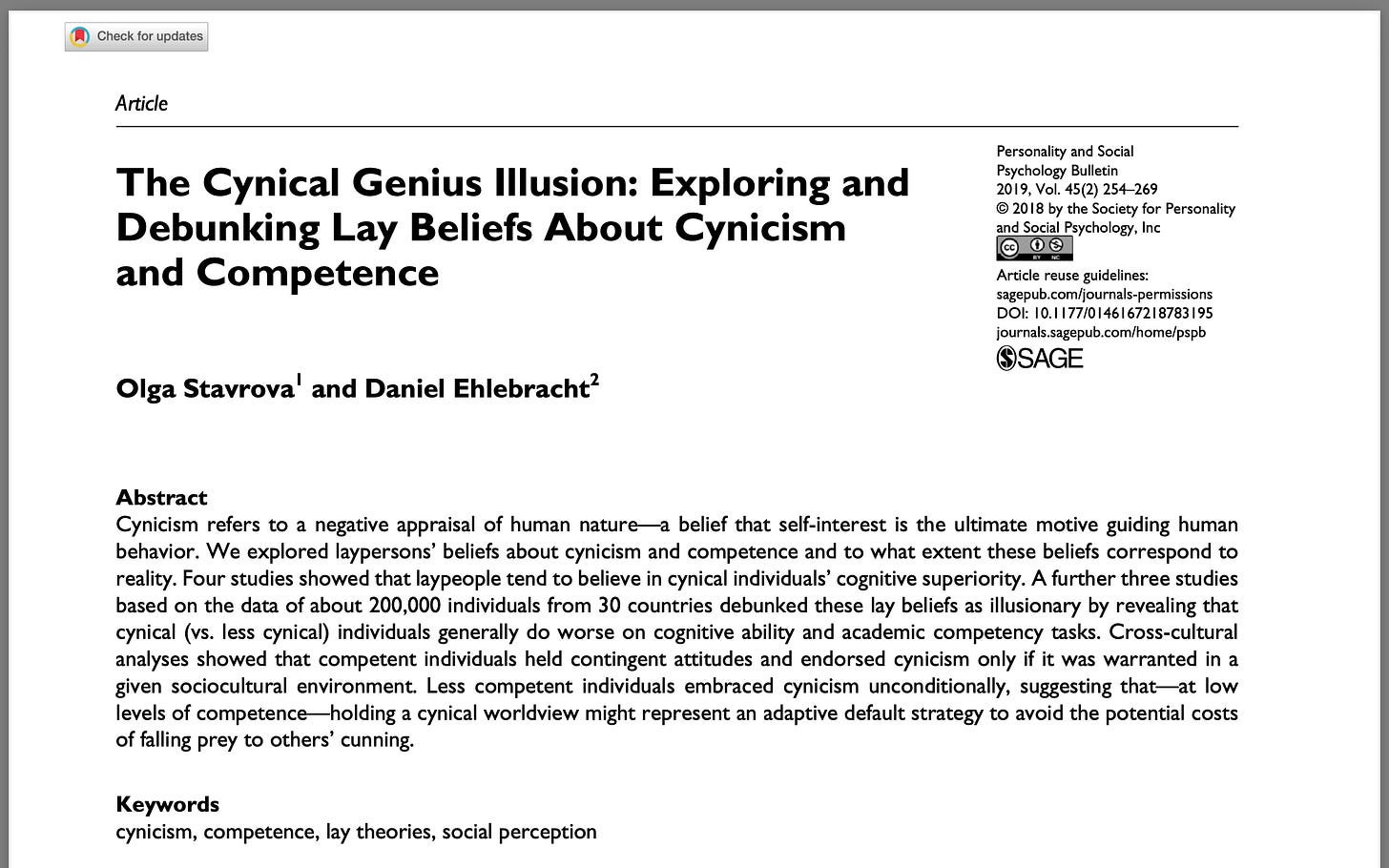The Most Addictive Site on The Internet
How Poolsuite turned 80s nostalgia into a business empire
What started as a free internet radio station is now an “Internet Leisure Corporation”. Poolsuite is the vibe-site for those craving the sunny dream of an endless 1980s summer.
https://poolsuite.net
Origin
Marty Bell’s Poolsuite began as an antidote to gloom. In 2014, Bell was living in the cold Scottish Highlands and found himself yearning for Ibiza summer vibes.
So he made himself a “feel-good, super-summer music” playlist - and paired it with retro beach visuals.
“The first time I put these two things together I laughed so hard & couldn’t stop smiling - I felt like I was having serotonin injected directly into my brain.” - Marty Bell
Business Model
The site ran on volunteers and a $100/month budget. But as the fanbase grew, opportunities to monetize started appearing - and Bell was careful to choose only those that fit the Poolsuite vibe.
“I’d been pitched so many product ideas for Poolsuite… swimwear, a branded beer, pool floats… they all felt very obvious and not exciting” - Marty Bell
Marty Bell famously operated Poolsuite for years without caring about revenue …until Vacation Inc. came along. What began as a free internet radio has since blossomed into a multifaceted “internet leisure corporation”.
By mid-2021, Vacation® the “Official Sunscreen of Poolsuite” racked up six figures in pre-orders (and 7-figures revenue in the first 6 months). The next evolution was making the community itself into the product. In late 2021, Poolsuite embraced Web3 by launching an NFT-based membership program (with perks like first access to guest-list only events hosted by Poolsuite). They released 2,500 “Executive Membership” NFTs. The NFTs (0.2 ETH) sold out in 40 minutes.
Poolsuite grew from a passion project into a monetizable lifestyle brand by selling the feelings of nostalgia, escape, and aesthetic belonging that made the platform viral in the first place.
3x psychological tools for writers
1. Nostalgia
Poolsuite tapped into 1980s eternal summer nostalgia. Even users too young to remember the ’80s could feel the Sun.
When they launched their sunscreen, they didn’t sell health.
They sold leisure.
Use It: Start your sentence with a nostalgic hook: “Smell that? It’s pizza and internet”. Then link that feeling to your idea.
P.S. It’s a classic misdirection play.
Lucky Strike in the 1950s.
When the public started linking cigarettes to lung cancer, Lucky Strike sidestepped the health debate entirely and doubled down on flavor. “It’s toasted” - focusing attention on pleasure, rather than the threat.
Instead of going clinical, they went cinematic.
2. “Vibe” (aesthetic coherence)
Yacht rock, sun-bleached visuals, vintage Mac interfaces, golden skin, white sunglasses… Everything feels like summer. Even the SPF looks like it belongs on a speedboat.
Poolsuite commits 100% to its theme, creating a world that feels authentic. The fonts, colors, sounds, and tone all align to the 80s-leisure fantasy. Such authentic execution triggers admiration from users, who sense the passion and craft (and bonds more with the brand).
Use It: Choose a vibe and commit. Every post should feel like it came from the same universe - whether that’s “Esoteric Bulgarian bodybuilder” or “Desert philosopher.”
P.S. this reminds me of the the time when Steve Jobs even famously vetoed white plastic shades because they weren’t the right kind of white. That’s the type of aesthetic militancy that build a singular taste.
3. Escapism
Poolsuite is a mini vacation in your browser. It’s not just a site - it’s a summer vacation.
Stuck in a dull office or a pandemic lockdown, a user described tuneing into Poolsuite and instantly feel elsewhere – as he put it “Just what the world needed during quarantine.”
Use It: Frame your writing like a digital hideout.
Another classic examples of escapism psychology is Harley Davidson. Harley-Davidson did not sell motorcycles. They sold freedom.
Bonus: obscure PDF of the week
The Cynical Genius Illusion is the idea that sounding negative makes you seem smarter. We often mistake cynicism for intelligence - like if someone tears things down or mocks everything, they must be sharp.
-> Check out my obscure psychology (and other stuff) PDF archive here (it’s free): Cyberbunker





